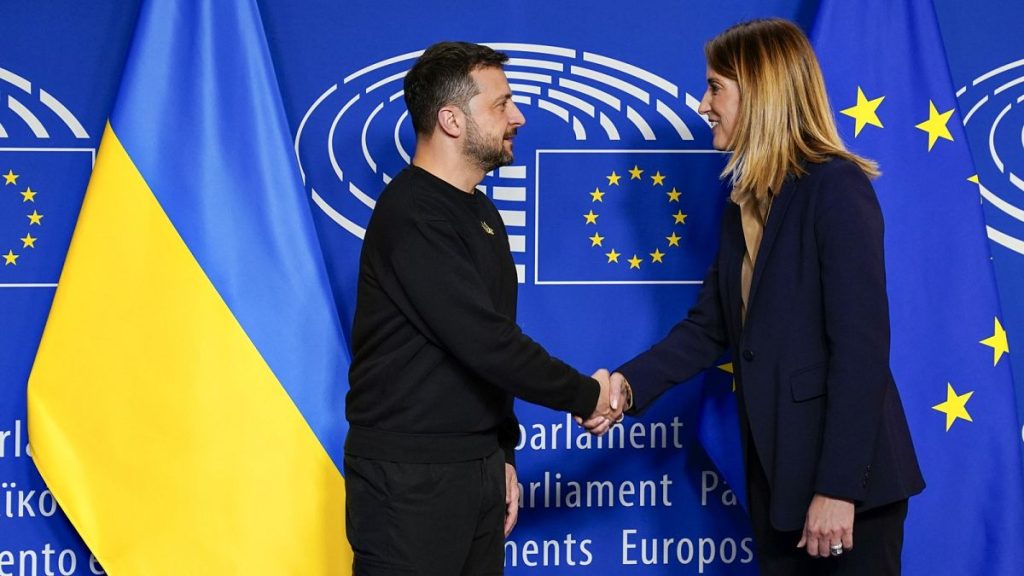The European Parliament voted overwhelmingly in favor of a ground-breaking initiative to issue a loan of up to €35 billion for Ukraine, using the immobilized assets of Russia’s Central Bank as collateral for repayments. The plan received 518 votes in favor, 56 against, and 61 abstentions, with lawmakers agreeing not to table any amendments to speed up final approval in the Council. European Parliament President Roberta Metsola hailed the decision as historic, stating that using profits from Russian frozen assets for Ukraine is a message that Russia, as an aggressor, must pay for its destruction. Notably, the proposed loan received support from some far-right lawmakers who traditionally oppose providing military and financial assistance to Ukraine.
Over 20 MEPs from the far-right Patriots for Europe (PfE) group voted in favor of the credit, while almost 40, including its president Jordan Bardella, chose to abstain. Only seven of the PfE’s 86 MEPs voted against the legal text, representing a modest contrast to their previous opposition to a resolution in support of Ukraine in July. However, the Europe of Sovereign Nations (ESN) group, known for its radical views, opposed the loan, while the majority of the European Conservatives and Reformists (ECR) group endorsed the initiative. No lawmakers from the centrist factions of the European People’s Party (EPP), Socialists & Democrats (S&D), and Renew Europe voted against the text.
The European Parliament’s approval paves the way for a rapid roll-out of the loan, pending final approval from the Council. Once approved, the European Commission will raise the money on the market and begin disbursements to Kyiv in early 2025. The €35 billion credit is part of a larger G7 initiative to provide Ukraine with a €45 billion loan, with profits from Russian frozen assets used to cover payments and interest rates. EU law requires sanctions on Russia to be renewed every six months, potentially allowing a single country to disrupt the loan. Hungary’s Prime Minister Viktor Orbán has threatened to veto any changes to the sanctions regime until after the United States’ presidential election on November 5th.
Diplomats have expressed concerns about Hungary’s veto, as it could impact the EU’s contribution to the G7 plan and increase risks for the common budget. The US has signaled its willingness to contribute €18 billion to the loan, even if Orbán maintains his veto. This concession could reduce the EU’s share from €35 billion to €18 billion, with the United Kingdom, Japan, and Canada providing the rest of the funds. London has committed £2.26 billion, while Ottawa will contribute 5 billion Canadian dollars. Specific details on each ally’s contribution are expected after G7 financial ministers meet in Washington later this week. Overall, the initiative aims to provide essential financial relief to Ukraine while holding Russia accountable for its aggression.













